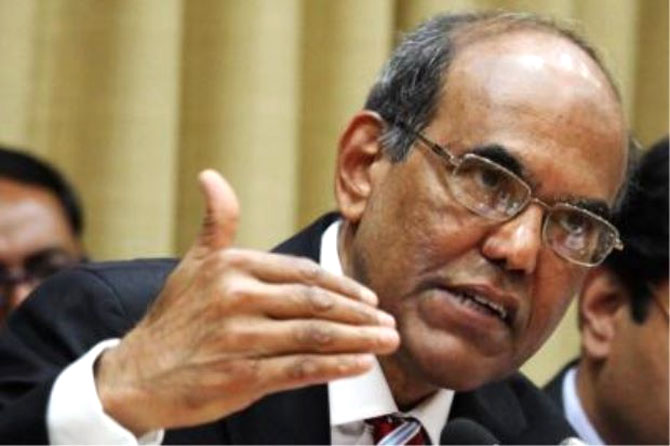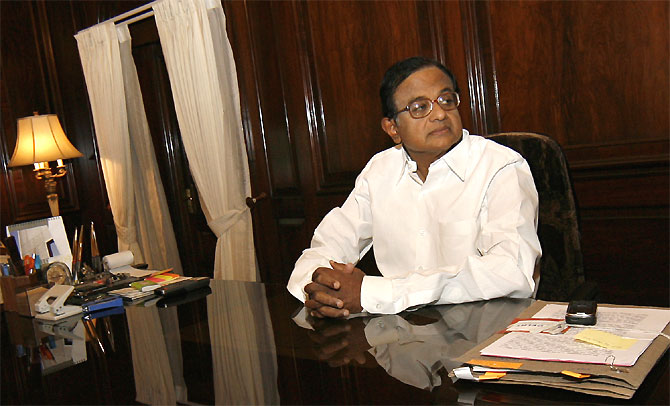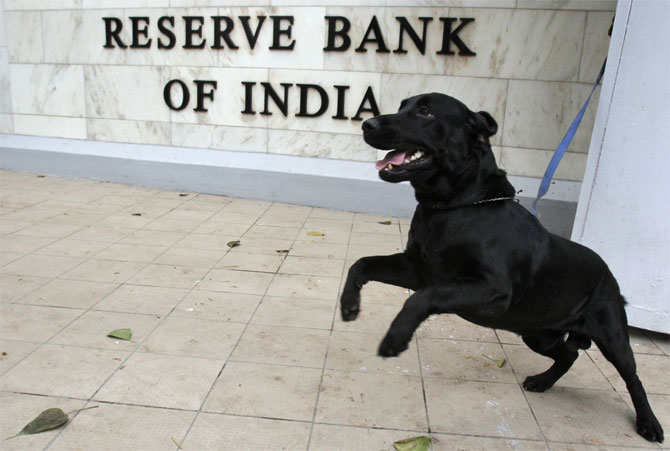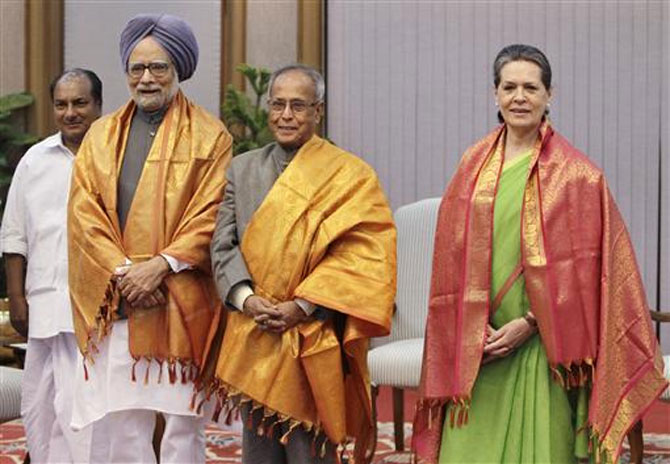Photographs: Reuters Manojit Saha in Mumbai
There is an razor-thin line between coordinating with the government and taking instructions from it.
In the last five years, outgoing Reserve Bank of India (RBI) Governor Duvvuri Subbarao saw a complete cycle. The bureaucrat-turned-central banker, who joined RBI amid a global financial crisis, had no time to settle, as policymakers needed to respond swiftly to the liquidity crisis that had affected the country’s money market.
Within days of assuming charge, he faced allegations of having made RBI the finance ministry’s extension counter, as the central bank responded to the crisis with a sharp cut in interest rates and acted in concert with the finance ministry.
In January 2009, North Block saw a change of guard — Pranab Mukherjee took charge of the finance ministry, while P Chidambaram, who had appointed Subbarao, was shifted to the home ministry. Surprising everyone, Mukherjee announced RBI would issue new bank licences in 2010.
The announcement was despite the fact that RBI had internally decided against issuing fresh bank licences.
Click on NEXT for more...
Subbarao's 5 years: Managing crisis to managing conflict
Photographs: Adnan Abidi/Reuters
Since then, it has been a constant conflict situation, with Subbarao criticising most moves by the finance ministry.
For instance, he opposed the formation of the Financial Stability and Development Council on the grounds that the move would hamper RBI’s autonomy. The finance ministry, however, went ahead with its plans.
When Chidambaram returned to the finance ministry last year, one expected things to improve.
But since 2008, much water had flown under the bridge. During the second quarter monetary policy review in October 2012, the central bank ignored the minister’s wish to cut interest rate, prompting a disappointed Chidambaram to comment the government will alone work to revive growth.
Later, the ministry ignored Subbarao’s recommendation to extend Subir Gokarn’s tenure as RBI deputy governor.
Click on NEXT for more...
Subbarao's 5 years: Managing crisis to managing conflict
Image: A sniffer dog from the Indian police is tied outside the Reserve Bank of India.Photographs: Vivek Prakash/Reuters
At the annual monetary policy review in April this year, Subbarao said, “I am an inflation governor.” The large amount of liquidity infusion in 2008-09 might had fuelled inflationary pressures, Subbarao acknowledged in his last public speech last week. Since 2008-09, inflation had haunted the central bank for the next two years.
Central bank experts believe the battle on inflation was lost when a lot of liquidity was infused and the policy tightening cycle delayed. Subbarao’s baby-step argument (raising the policy rate by 25 basis points when inflation was in double digits) was also criticised.
And, more criticism was in store.
Since March this year, the rupee started its downward journey against the dollar. It has depreciated 22 per cent since then. “I had come into the Reserve Bank five years ago, as the Great Recession was setting in. I am finishing now, as the Great Exit is taking shape, with not a week of respite from the crisis through the five years,” Subbarao had said last week, referring to the financial crisis following the Lehman Brothers collapse in September 2008 and the US Federal Reserve’s plan to taper its bond-buying programme, respectively.
Click on NEXT for more...
Subbarao's 5 years: Managing crisis to managing conflict
Photographs: Reuters
He blames the high current account deficit, higher than the central bank’s comfort zone for three years now, on the government’s inaction on structural reforms.
He expects the trend to continue this financial year, too. In 2012-13, the government’s current account deficit was at a record 4.8 per cent of gross domestic product, against the central bank’s comfort level of 2.5 per cent.
A Bank of America Merrill Lynch report said recouping foreign reserves was key to shoring up the rupee. Many expects blame the central bank for not boosting its forex reserves when the rupee was appreciating.
The declining forex reserves, enough to cover just six and half months of import, is seen as exerting pressure on the rupee. Economists say eight-10 months of import cover is crucial for currency stability.
That he is an economist is a major advantage for governor-in-waiting Rahguram Rajan; Subbarao was a trained engineer.
A key aspect the new governor has to consider is there is an razor-thin line between coordinating with the government and taking instructions from it. The 2008 rate cuts that sought to infuse liquidity are an example of such dilemma.






article